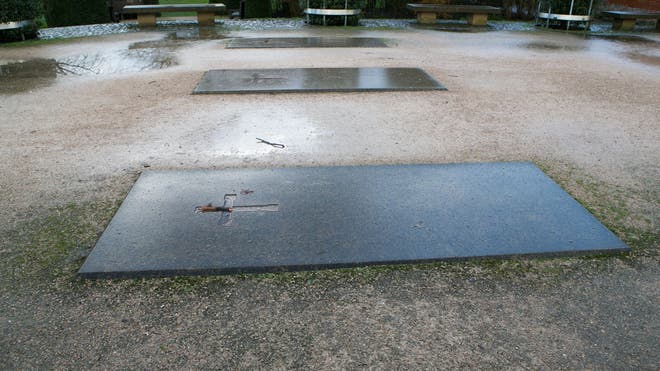
British archeologists are hoping they have discovered partial remains of the ninth-century’s King Alfred the Great at a medieval abbey in southwest England.
Preliminary tests suggest that a pelvic bone found in a museum box is either Alfred, or his son, Kind Edward the Elder. The bone was among remains excavated some 15 years ago at an abbey in Winchester, England, but they were never tested. Instead they were stored in a box at Winchester Museum until archeologists recently came across them.
"The bone is likely to be one of them, I wouldn't like to say which one," Kate Tucker, a researcher in human osteology from the University of Winchester told Reuters. Researchers say that, given the historical record, bones that old could only have come from Alfred or his family.
Nick Thorpe, head of the University of Winchester's archaeology department, said he and his colleagues are "extremely excited to have been able to plausibly link this human bone to one of these two crucial figures in English history."
The pursuit of Alfred’s remains was sparked by the discovery of the body of King Richard III, under a council parking lot in the central English city of Leicester in February 2013.
Alfred was buried at a cathedral in Winchester but his remains were moved—along with other royals’ –by monks in 1100 to the Hyde Abbey, about 65 miles southwest of London. What happened to all the royal remains buried there became a mystery after the abbey dissolved in 1536.
Some research suggests that in 1788, inmates building a prison on the site found the royal coffins and pillaged them, scattering the remains in the process.
Tucker and her team of researchers started looking for Alfred’s remains last year and found something at the museum site which had been discovered in a previous dig near the high altar at Hyde Abbey between 1995 and 1999.
Tests concluded the bone-- about a third of a male pelvis-- belonged to a male, between 26 and 45, believed to date back to between 895 and 1017.
Since there were no other burials at the site during the Anglo-Saxon period, archaeologists concluded it had to belong to a member of the royal house of Wessex. The estimated age of the bone suggests it belongs to either Alfred or his son.
"Who else could it be?" Tucker asked reporters Friday.
DNA from Richard III's remains were matched with descendants, but Tucker said finding genetic matches for Alfred may prove more difficult.
"We have had quite a number of individuals who have actually contacted us, saying they are descendants of Alfred," Tucker said. "There's the potential that might be worth pursuing but it is a very long way to try and go back - we're talking an extra 500 years further back than with Richard III."
Historians and archeologists believe this week’s discovery will pave the way for further exploration of the site in hopes that more bones will be found.
Alfred is the only English king to carry the moniker, “Great,” and is known for his passion for education, which was instrumental in the development of the English language. He ruled the kingdom of Wessex in southern England from 871 until his death in 899.
No comments:
Post a Comment